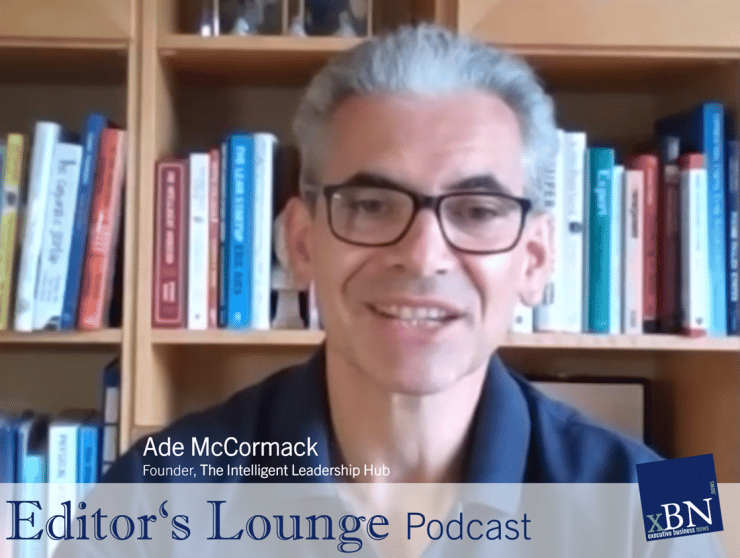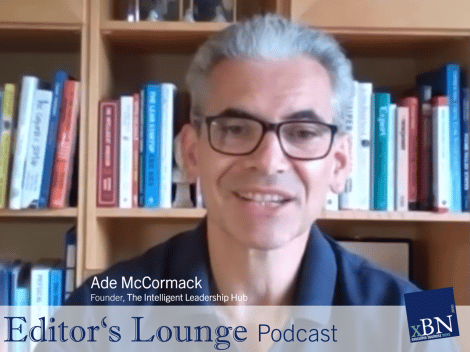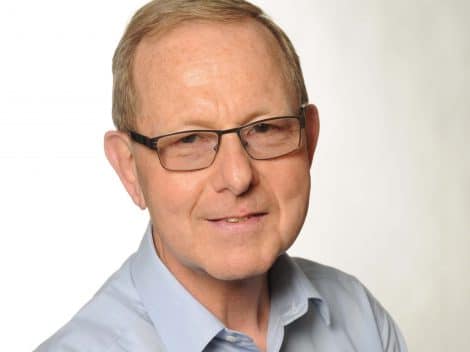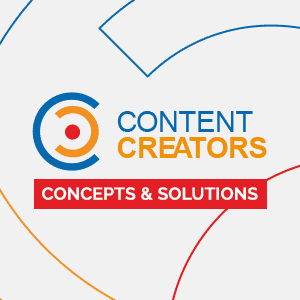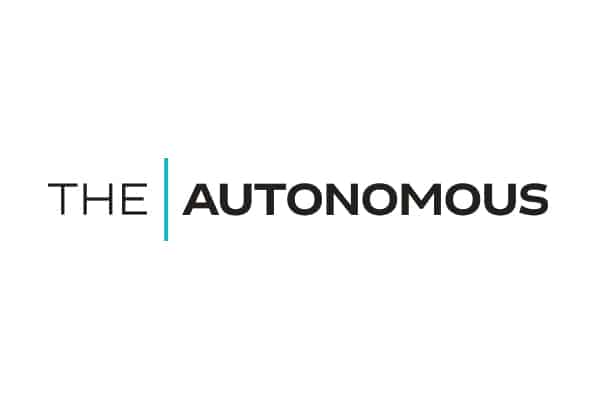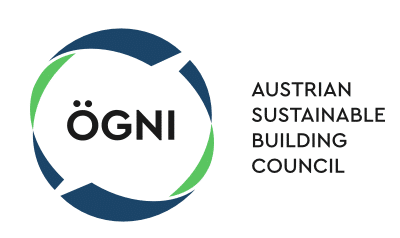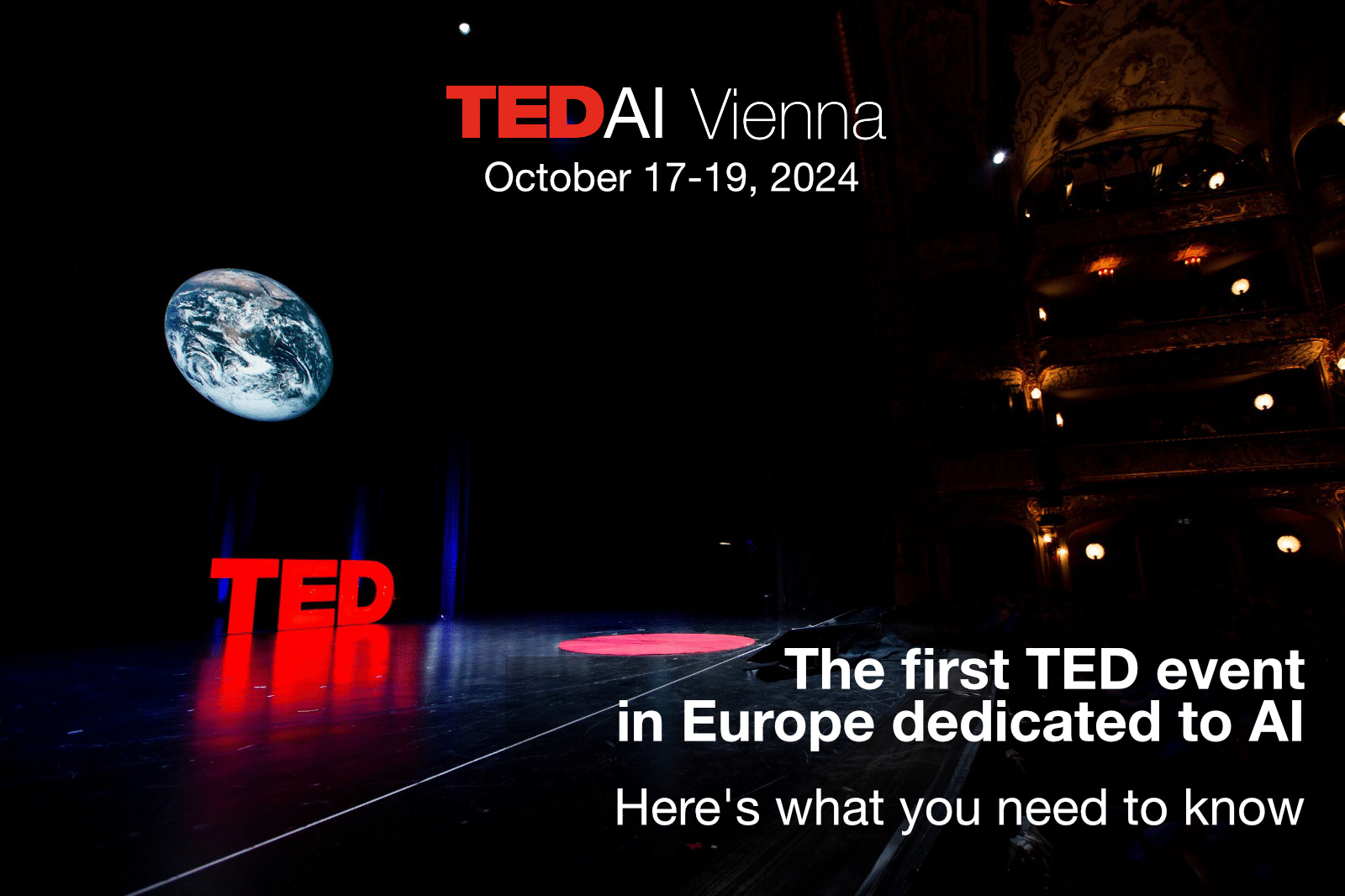xBN publisher Isabella Mader spoke to Ade McCormack, founder of the Intelligent Leadership Hub, about disruption and leadership in an increasingly disrupted world.
xBN: In the middle of an energy crisis with 2.5 years of a pandemic right behind us, with a war in Europe … and counting: Is now the right time to think about disrupting your own business?
Ade McCormack: To some extent the environment will do the disrupting for us. I guess the question really is how do we respond to an increasingly disrupted environment? If you think of organizations as living organisms, they have to adapt in order to survive. The world is becoming more disrupted and therefore we need to adapt more frequently. I guess it is a case of making dainty little changes on a very regular basis. I don’t actually recommend transforming because often transforming can disrupt your cash flows and can upset your staff and essentially you damage what was already working. However, the big risk is in only having one business model. It’s like having only one bet on one horse in the race so to speak. Rather than transforming I advocate creating parallel business models, so that eventually, you’re running a portfolio of business models in effect. So, one day, when the digital grim reaper comes into your main business, you have other sources of cash.
Maybe that seems quite radical in terms of what’s required from leadership, but fundamentally it doesn’t require transforming your existing organization. By all means, automate it, sprinkle it with tech pixie dust, make it faster, smarter, cheaper – but what we have to be careful of is that even a faster, smarter, cheaper Titanic is still a Titanic. Even one optimized to detect icebergs is no magic air travel.
xBN: That sounds in a way also like a bit of a relief for management and leadership because the greatest fear might be to disrupt what works. Instead of reshaping what works, you suggest a second operating system and a third one and so fourth to build in addition. This might just explain why digital transformation when adding new streams of business result in an increase in the number of staff than what’s typically expected, like a reduction of staff?
Ade McCormack: If you went to a digital transformation cocktail party no two people would be doing the same thing. Technology is very important, but also how you utilize your people. The majority of people today are employed as process workers as “cogs in the machine”. If you were to put them all through some sort of design thinking course trying to make them into a Leonardo da Vinci you would simply confuse them and therefore damage your your primary source of cash. To your point: What I’m advocating certainly requires more people, but a very different type of person to staff the plan B, C, D etc.
xBN: Many innovative leaders have either been stopped dead in their tracks by activist boards or activist staff alike, trying to stop new business lines. How do you go about convincing everyone? One example could have been General Electric? With their appliances section sold to Haier and now with the new way of approaching staff and working with staff, they are now overly successful, especially with a digital product.
Ade McCormack: GE is a good example, because it got carried away and said we are a software business now – and they took their eye off plan A and focused too much on plan B, C, D, E etc. So you know whilst it’s exciting to transform your organization you mustn’t take your eye off your primary sources of cash. With GE appliances going to Haier, and the Haier model being a kind of exemplary case book example of distributed leadership, micro enterprises and everyone judged on the customer experience, not just the the sales guys. It’s a wonderful model: Everyone is accountable. If you’re not in some way or other improving the customer experience: What are you doing in the organization?
xBN: So basically, that’s also what you would say to convince boards and staff – to focus on customer experience first?
Ade McCormack: Sorry, I didn’t really answer the question originally.
[Laughter]
The reality is that if your staff and your shareholders and the market are telling you something you would be foolish not to factor that in. I can get very angry with a tsunami but the tsunami doesn’t care. I’d better recognize a tsunami is coming and it’s out of my control. I can either drown or I can attempt to surf it, so to speak. So, when you’re getting a lot of critique regarding your leadership style or your approach, and that includes perhaps the unions as well, you do have to think very carefully about whether you should be fighting the tide. In some cases, you may actually have to threaten your own cash flows for a longer-term survival, but typically, how public companies show success is based on a very traditional balance sheet.
Those structures are the things that are going to really constrain us from radically transforming business, because when we look at a lot of the value of modern organizations there is no row in the spreadsheet for transformation. It’s just bundled under intangibles, so for example data capital, brand capital, cognitive capital. These things are not explicitly stated, even though they make up the bulk of the value of the organization. So I guess what I’m saying is that yes, we can train up our CEOs to make a more robust argument to activist shareholders, but fundamentally the CEO and the board are constrained by how success is measured, ultimately by the accounting standards that they have to adhere to.
xBN: Are you saying we need to first morph our organization into a new way of measuring success?
Ade McCormack: Yes, I think you’re right. Though leaders who measure success differently will often be doing it in spite of the system rather than because of it.. Only the most forward thinking of leaders would e.g. put serious effort behind sustainability initiatives when in fact they’re just being judged by short-term profit. You have to deliver, shareholders don’t care how you deliver. If that’s the specification then why would you care about long-term issues like sustainability? It requires a kind of very enlightened leader to say okay I’ll give them the numbers they want, because I need to stay employed myself, but I will also run my own dashboard and start to build our organization less around the needs of the shareholders and more around the values that our customers, our suppliers and our employees admire. That brings benefits as well and basically you’re making an economic case for ESG.
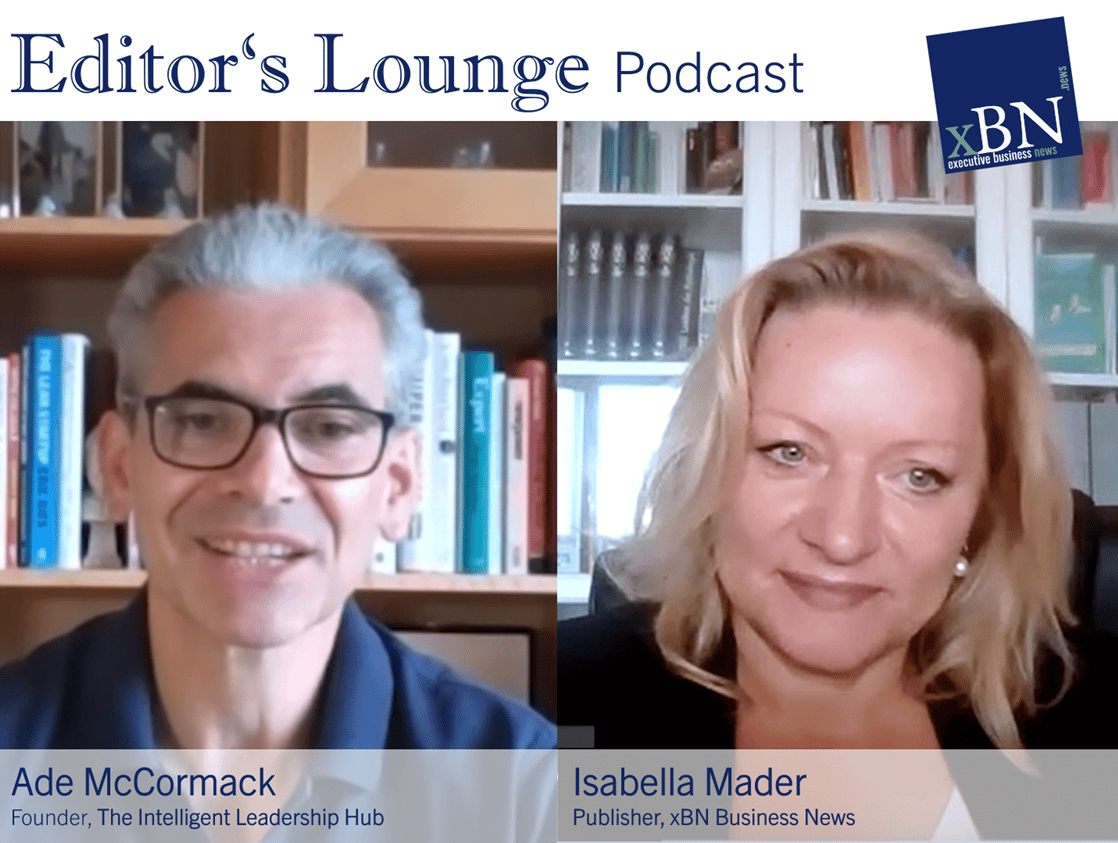
xBN: I’m trying to find a classic case that would illustrate your argument, like a well-known brand or well-known corporation that went this way. Does an example come to mind?
Ade McCormack: Patagonia went this way for instance. It’s a clothing company that is working within the constraints of financial reporting, but they recognize for example the importance of people. Whenever there’s a good wave they’re all allowed to go out surfing, because they happen to be near the sea. This is one example of what they would do. Overall it’s a kind of enlightened approach within the constraints of how they have to report to the market. Then you have a lot of social enterprises and NGOs that are looking at impact and not just at the outcomes.
But in business, there’s a whole bunch of organizations that are taking a slightly more enlightened approach, but are still grounded in the hard realities.
xBN: I have to ask this question: What type of leader would go for such an approach? Is it people like Richard Branson for instance, with Virgin, where people post online “I want to work for you”? These companies attract a lot of talent, they don’t seem to battle as much as others in the war for talent, maybe because people love to follow enlightened leaders?
Ade McCormack: The Richard Bransons, the Mark Benioffs and others who seem very enlightened, who treat their organizations like a family, who are pretty people centric and so on, they are these kinds of talisman-type leaders. I think they’re a tremendous risk. Apple has done pretty well post Steve Jobs. But in any case, the cult of the hero leader I believe is a mistake. Essentially you centralize all the value into one individual, which is a tremendous waste of the cognition of all the other people in the organization. This also results in for example the CEO of McDonald’s getting paid over a thousand times more than the median salary of all the other workers. Now it turns out he probably deserves that because everyone else is a process worker and he’s the only one making the tough decisions.
This is why I’m strongly advocating a more decentralized leadership approach and in fact I’d go as far as to say ubiquitous leadership, so anybody who has responsibility for anything or anyone no matter how far down the structure they are. They are a leader in their particular context. I’m not in favor of the charismatic leader as hero model which essentially has come out of Hollywood and we’re just emulating it. We’ve built an entire ecosystem around that hero and that involves the search industry, executive education industry etc. They became closed systems, with the effect that only a handful of people can make all the money, which of course leads to economic inequality and ultimately social disparity and that’s a problem for society.
xBN: Are you saying the new visionary leader would be rather someone who empowers others and is exactly not the classic iconic type that we know?
Ade McCormack: Fundamentally, leadership in my view is not a role it’s a competence. And it’s a competence we all need to learn.
“Leadership is not a role. It’s a competence.”
Ade McCormack
xBN: Very nice. The new leadership is less about the leader but more about the people and the ideas?
Ade McCormack: It’s also about new staff. Most people are happy to live their lives in a learned helplessness state: If my boss tells me what to do I don’t have to take responsibility for the outcome. Whereas, if I’m a leader as well, I’m actually responsible for this customer, this supplier, this new intern for example. Then I will internalize the responsibility and I will actually lead. But I need to also be empowered to make decisions, to capitalize on any opportunities that emerge in my given part of the world. The leadership model we have today is essentially this: Imagine a football match where the two captains chase the ball around the pitch throughout the match issuing instructions to each of their players as to what they should do. That’s ridiculous, but that’s what we have. Our centralized leadership model is very broken.
xBN: This chimes in with Peter Drucker who was also extremely wary of charismatic leaders. He also spoke about President Truman, saying that he didn’t have an ounce of charisma, but still he called him a great leader because he could be trusted. If people heard him say yes, they knew it was yes, and the other way around. Are these the values that you point to like trustworthiness and consistency?
“Socializing at scale is our superpower.”
Ade McCormack
Ade McCormack: Essentially, we are wired to be tribal. Human adaptations take around 25,000 years. So, we are naturally tribal and key to remaining in the tribe is to establishing trust. People can trust you to do what you say, trust you to be a net contributor to the resources as opposed to a net depleter of resources. We are social animals and socializing at scale is our superpower. Trust is a fundamental ingredient, but it’s context sensitive. You trust someone for a specific set of circumstances: You trust them to deliver on their promises in terms of a business relationship, perhaps, but you don’t necessarily trust them to come up with a very good joke at a wedding for example.
xBN: Very true. Let’s take a slight turn to the future itself. If we are now preparing for the future, that we maybe also like to co-create, what is this future going to be like? What type of paradigm would you expect to be coming up or are we in the middle of it and not seeing it? What can we still shape and what do we have to let go of in terms of trade-offs, because it’s not just about adding on but maybe also about letting go of something old?
Ade McCormack: Yes, I think, if we look at the context of the last 100 years we thought we had tamed nature. We have created a synthetic certainty in society so much so that we have become arrogant enough to say that we will design the future so to speak. You might say disruption has come down from Mount Olympus to correct us humans, to stop us from being arrogant. Disruption is now saying essentially, you are no longer in control of your destiny. Therefore we are no longer the architects of our future. The future is unknowable, so the best we can do is respond to our environment going forward. This is fundamentally epigenetics: The living beings that survive are those that adapt best to the environment they’re actually faced with. Amoebas do not have 20, 30, 40, 50 visions, they simply respond to their environment. That’s what we were doing up until 12,000 years ago. Then, all of a sudden, we decided to put structures in place like management, ownership of property, subjugating our fellow men etc. So you might say the rot started 12,000 years ago with the agricultural revolution and it accelerated very much throughout the industrial revolution.
Essentially, disruption and I’m not saying disruption is god-given thing, it’s more the compounding and conflating of macro environmental forces from political, economic, social, technological warfare. The war for resources, the war for talent, the space race, all of these things are compounding and conflating to make the world unknowable. We’re not going to like that because we’ve been so used to controlling our destiny. So you might say we’re currently on a dystopian path in many respects thanks to the industrial revolution, but we are now transitioning from the era of security – and of course I’m talking about the first world here –to freedom It’s a forced transition though. So good bye comfort, good bye convenience, hello danger, hello precariousness, hello liberation, hello feeling human again. This is good news, but it’s not for everybody. It’s only for those who want to be human again.
xBN: This is a very strong message. So you are saying we have to learn to embrace danger? Currently, internationally, we see the opposite: Anxiety on the rise.
Ade McCormack: Basically, yes. A dog is a good example: The dog will sit there doing nothing and then it will hear someone at the door and go mental. So the dog has no anxiety, no anxiety, no anxiety, acute anxiety, no anxiety, no anxiety, no anxiety. We in turn have developed chronic anxiety: Chronic anxiety, chronic anxiety, and we very rarely get acute anxiety. We are never really in a resting state and that’s unhealthy, of course. Therefore, I personally advocate having at least one near-death experience every day.
xBN: Okay! How would you go about having this one?
Ade McCormack: Six or so years ago I started doing parkour. Now I’m not gonna give the impression that I jump across very high buildings or anything like that, but I do stuff that scares me. When you’re scared you’re not thinking about what am I going to be eating tonight or when I’m going to get that report in. You’re thinking about getting through this without breaking something. I found that this is a kind of very dynamic mindfulness exercise. The more time you spend in chronic anxiety, the less cognition you have available to doing innovative work. Your productivity as a post-industrial unit of economic value is inversely proportional to the amount of chronic anxiety you carry with you.
xBN: This is a very good exercise. I think we will recommend this.
Ade McCormack: What we’ve got to be careful of is if we become dopamine junkies. We will be constantly looking for higher and higher highs but there’s always the consequence of the associated low. So the ultimate trick is to get joy out of smelling a rose or watching a young child play. The more we can get joy out of the mundane the happier we will be. So while I also do parkour, I try to self-regulate and balance it with other activities.
xBN: I have one more question for you, because I asked around and said I would be speaking to you, and if there were questions that I should ask. One repeated question came up, the others we have tackled. How do we cope with rising complexity? Not by trying to deal with it all alone of course, but are there other pieces of advice that you would have?
Ade McCormack: Yes. I’ve already alluded the need to have multiple business models. So, instead of just backing one horse in the race, you’re backing multiple horses in the race. The other thing is to ensure that your failure velocity is sufficiently high. Failure is a consequence of experimentation and experimentation is the price you pay for innovation. If your failure velocity is too low you’re not innovating at a fast enough rate. Complexity at any given moment in time is just an environment trapped in time. So how do I best respond to this environment, and then how do I respond to the environment in the following second or the following day or the following week? You do that by continuously testing the market. Fundamentally, in my view, organizations need to be like living organisms or like tribes: So they sense the market, they are on the lookout all the time, the faint snaps of the twig speaks to people all the time. We need to be emotionally intelligent as an organization and as an individual.
We have to sense what other people are thinking and feeling. We have to sense what’s going on in the wider world that gives rise to let’s say a gut feeling or a heart feeling or a mind feeling organizationally or individually. We need to use that data to decide what to do next, and most importantly, we need to act promptly. so this is emotional intelligence. IoT for example has a very strong role to play, you can know having sensors in the environment. A more mundane example is that in many organizations the sales staff in the field rarely talks to Marketing. It’s not easy for them to communicate with Marketing, it’s not easy for them to communicate with product development and therefore what the sales guys are seeing, like slight changes in the market, are not reflected in marketing and product development. That’s a mundane example of not sensing what’s happening in your environment, and if you’re not sensing you’re becoming decoupled from reality. As you become decoupled from reality, basically you’re a ‘dead organisation walking’.
There’s a lot of talk about agility at the moment and agility is like what happens when you get into a fight with a bear. You know how you can duck and weave and escape from the bear. The next level up is anticipation, so you look out for a bear. You’re constantly scanning the horizon for bears and as you’re scanning for bears you get bitten by a snake. You think “Hang on, I wasn’t looking for snakes!” Well, that’s because you were too focused on one thing. This is the difference between focus and attention. With focus you are drilling into something, attention is just having a soft awareness of what’s going on. The attention we need for sensing is like when we are driving a car: You’re very much concentrating on the erratic motorcyclist in front of you, but at the same time you are aware of what’s going on around you. We need to get the balance right between focus and attention and of course the speed at which we flick between both of those increases as the world becomes more complex.
xBN: Thank you very much, extremely inspiring conversation. Hope to talk soon again.



